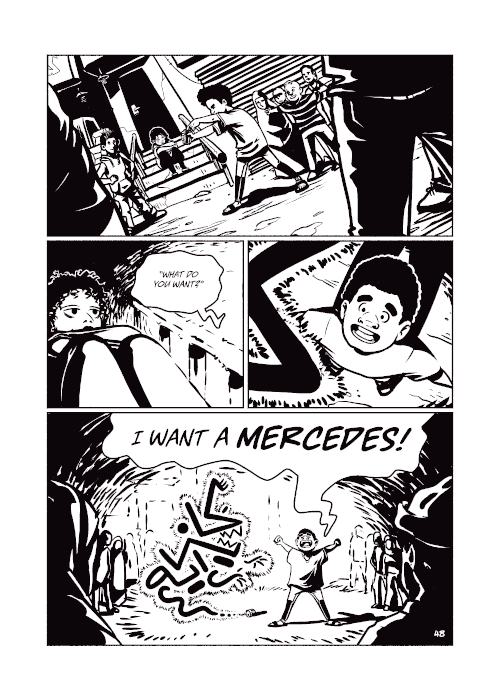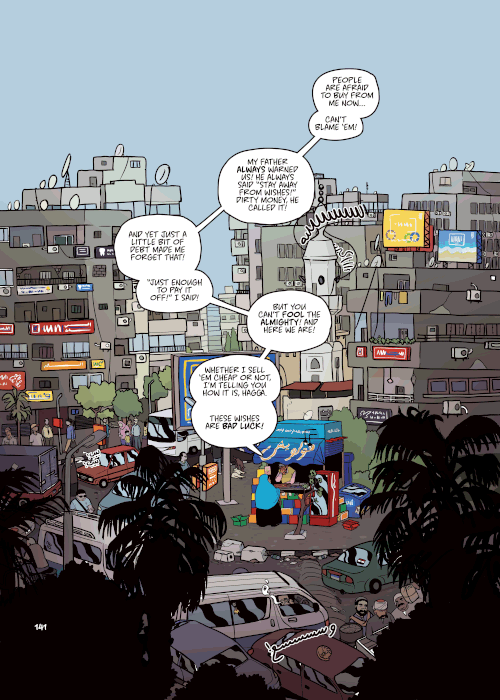February reads:
Big Planet - Jack Vance (1952)
Vance's first major science fiction novel and one that feels very much of its time. But also its credited with establishing a new genre, the Planetary Romance, and has more going on under its surface than what basic synopsis suggests. Big Planet is named for the big planet Big Planet, so called because it's a big planet. Roughly three times the size of Earth, it shares a similar level of gravity because it is almost entirely metal deficient. It's become a frontier world of vast open vistas that have been minutely settled by Earths' outcasts who after a couple hundred of years have transmuted into morally peculiar societies. When a local warlord starts conquering neighboring settlements Earth gets worried and sends a team of special investigators lead by one Claude Glystra to scout the situation. However the warlord blows up their ship in orbit and the team is stranded 40,000 miles from Earth Enclave, the only safe place on the planet.
Aside from Glystra the characters are thinly drawn and mostly exist as fodder as the team makes their way to sanctuary, but that's okay because the setting is really the star of the show here. The team moves from one unusual setpiece to the next in a series of picaresque escapades before a last minute swerve pulls back to address the situation of Big Planet as a whole and offer some really interesting perspectives that recontextualize everything. Very effectively done IMO. With a little bit of tweaking this could be adapted as a really crackerjack Star Trek movie.
This book also sees Vance working into his style and establishes a base approach that he'll expand upon for the rest of his career. Big Planet isn't as polished as his later work, but it is still quite striking and beautiful on its own. Consider this passage from almost the exact center of the book as the party travels via monoline, a cross between a leagues-long ski-lift and sailing ship:
A shaft of pure brilliance plunged down through the sky — Big Planet sunlight. The rain-washed colors of the forest shone with glowing clarity never seen on Earth: black-greens, red, yellows, ochers, buffs, the line-green of low hangworts, the russet of bundle-bush. The wind blew high, blew low, the clouds flew back across the mountains; they sailed in a fresh sunny breeze.
The monoline dropped down out of the forest, stretched across a river-valley, over a swift river which Clodleberg named the Thelma. They made a fifty-foot portage up the opposite bank, and set off once more across a land of peaceful farms and stone houses, undistinguished except for the fact that each house carried on its gable an intricate tangle of brambles and spiny leaves.
Glystra called Clodleberg. "What on earth are those bristling thorn-patches?"
"Those are the ghost-catchers," said Clodleberg easily. "This section of country abounds with ghosts; there's a ghost for every house, sometimes more; and since they always give a quick jump which takes them to the roof where they can walk back and forth, the traps discourage them sadly... The very home of ghosts is this Mankelly Parish, and witches too..."
Glystra thought that no matter how ordinary and uneventful a Big Planet landscape might appear, it was still — Big Planet.
The monoline paralleled a rutted earthen road, and three times the caravan, swinging along briskly with the breeze on the beam, passed big red farm-wains with six foot wooden wheels, squeaking and groaning like scalded pigs. They were loaded with red melon-bulbs, bundles of orange vine, baskets of green okra. The lads who walked barefoot alongside goad the long-necked zipangotes wore tall conical hats with veils of white cloth about their faces.
"To fool the ghosts?" Glystra asked Clodleberg.
"To fool the ghosts."
The Magnificent Showboats of the Lower Vissel River, Lune XXIII, Big Planet - Jack Vance (1975)
Twenty years later Vance would revisit Big Planet with this story of Showboat captains traveling up and down the Vissel River bringing entertainment to the isolated and rural villages. A very different book from Big Planet, Showboats is a lighthearted comedy with no sci-fi elements other than the alien aspects of the setting, and even those are minimal. The novel opens with a boldfaced acknowledgment of what the previous book left implied: that Big Planet is a problem with no solution. But instead of contending with that, Showboats instead zooms into to focus on a small humorous tale about the kind of existence that arises out of this problem. In this way, Big Planet is... elevated? Redeemed? It transforms from "problem" to "just is" the same way that Earth or the Universe "just is." A really fascinating swerve from the ending of the prior book.
The story told here is a lot of fun. The showboats are a huge sailing ships crossed with theatres (think of FFIX's Prima Vista) with names like
The Melodious Hour or
Fironzelle's Golden Conceit, who's entertainments are combination dramatic performance, circus, magic act, burlesque, freak show, and on occasion live execution. The captains of these boats are eccentric prima donnas and the plot largely concerns the sophisticated tricks they play on each other as the vie for the custom of base and provincial audiences.
There's an argument under examination here for art as entertainment, but its very finely wrought and quite tricky in its backtracks and convolutions. In some ways Big Planet is more immediately striking with its subtleties, if that makes any sense. Showboats is a much more intricate puzzle, less immediately apparent. It's also more immediately satisfying as a tale on its face with big comedic moments and lots of good patter. I wonder if Vance intentionally structured it as an inversion of Big Planet... regardless, heck of a good yarn.
Osso Santelmus opened the competition with little more than a token performance. His clowns capered to raucous music; a magician caused objects to sprout wings and fly across the stage; Santlemus himself delivered a comic monologue and simulated a fight between two vulps and a grotock.
The next presentation, aboard the Vissel Dominator, was somewhat more ambitious: "The Legend of Malganaspe Forest" in sixteen tableaux. The Psychopompos Revenant staged a ballet: "The Twelve Virgins and Buffo the Lewd Ogre". The middle afternoon was enlivened by "Gazilda and his Unfortunate Double-jointed Idiots," on the Fireglass Prism. As Phaedra the sun settled into the Lant River, the troupe aboard the Chantrion staged a rather macabre burlesque: "The Oel's* Dinner Party".
Lessons in Chemistry - Bonnie Garmus (2022)
This one was a real slog. I read it on recommendation and it very much wasn't for me. The tale of a woman chemist in the early 60s who has all the attitudes and opinions of a woman in 2022. A polemic full of unrealistic situations and broad stereotypes, I only finished it out of obligation. I hate being all negative, so I'll say it did have a quirky tone that sometimes worked as in the dog named 6:30 which is a very good name for a dog.
For Elizabeth, cooking wasn’t some preordained feminine duty. As she’d told Calvin, cooking was chemistry. That’s because cooking actually is chemistry.
Mort - Terry Pratchett (1987)
Read to Alex as a bedtime book. He enjoyed Death in Guards, Guards! so much he wanted to read a book all about him. This is perhaps the first fully mature Discworld book? It's still pretty lose and uneven, but plenty entertaining regardless. Alex enjoyed it, if not as much as Guards. He really liked the concept of a bubble parallel reality contained in the main one. I've never been as fond of this book as some people, but I enjoyed reading it more than the first time way back when I was a dumb kid myself. Haveta admit, nested parallel dimensions are pretty cool.
The only thing known to go faster than ordinary light is monarchy, according to the philosopher Ly Tin Wheedle. He reasoned like this: you can't have more than one king, and tradition demands that there is no gap between kings, so when a king dies the succession must therefore pass to the heir instantaneously. Presumably, he said, there must be some elementary particles -- kingons, or possibly queons -- that do this job, but of course succession sometimes fails if, in mid-flight, they strike an anti-particle, or republicon. His ambitious plans to use his discovery to send messages, involving the careful torturing of a small king in order to modulate the signal, were never fully expanded because, at that point, the bar closed.
The Repairer of Reputations - Robert W. Chambers (1895)
First story in the famous King in Yellow collection that inspired Lovecraft. Read for the podcast. A crazy story about a man who goes insane, or maybe he's the only sane person in a century gone mad. Most surprising thing: features New York City public suicide booths a hot century before Futurama championed the idea.
It is well known how the book spread like an infectious disease, from city to city, from continent to continent, barred out here, confiscated there, denounced by Press and pulpit, censured even by the most advanced of literary anarchists. No definite principles had been violated in those wicked pages, no doctrine promulgated, no convictions outraged. It could not be judged by any known standard, yet, although it was acknowledged that the supreme note of art had been struck in The King in Yellow, all felt that human nature could not bear the strain, nor thrive on words in which the essence of purest poison lurked. The very banality and innocence of the first act only allowed the blow to fall afterward with more awful effect.
Snuffles - R. A. Lafferty (1960)
Also read for the show. Story of a team of scientists studying a planet where the water is carbonated, the fruit is made out of drugs, and there's a big friendly bear until he isn't. Compelling and profound with big things to say about the nature of God and Man. Only Lafferty! I tell ya!
The trees were neither deciduous nor evergreen (though Brian Carroll said that they were ever-green), nor palm. They were trees as a cartoonist might draw them. And there were animals that made the whole idea of animals ridiculous.
Very Good, Jeeves - P. G. Wodehouse (1930)
The last collection of Bertie and Jeeves short stories before Wodehouse turned to novels. After Lessons in Chemistry I needed a sure thing and indeed every story here had me loling out loud if not outright busting a gut. There's a legitimate criticism that every Jeeves story is essentially the same, but to me that is part of their charm. The plots, as entertaining as they are, aren't so much the point as the way Bertie (and by extension the entire aristocracy) can't help but clown on himself, yet at the same time he exhibits a remarkable sophistication and elegance in his virtuosic use of slang. That's a fascinating contradiction that goes beyond the simplicities of the plots. I'm looking forward to seeing how Wodehouse will apply and expand the formula when approached with the breadth of depth afforded by a whole novel.
I have always had a suspicion that Aunt Dahlia, while invariably matey and bonhomous and seeming to take pleasure in my society, has a lower opinion of my intelligence than I quite like. Too often it is her practice to address me as ‘fathead’, and if I put forward any little thought or idea or fancy in her hearing it is apt to be greeted with the affectionate but jarring guffaw.
*Oel: a creature indigenous to Big Planet and found in many varieties. Typically the creature stands seven feet tall on two short legs, with a narrow four-horned head of twisted cartilage. It's black dorsal carapace hangs low to the gound; to its ventral surface are folded a dozen clawed arms. From a distance an oel might be mistaken for a gigantic beetle running on its hind legs.


